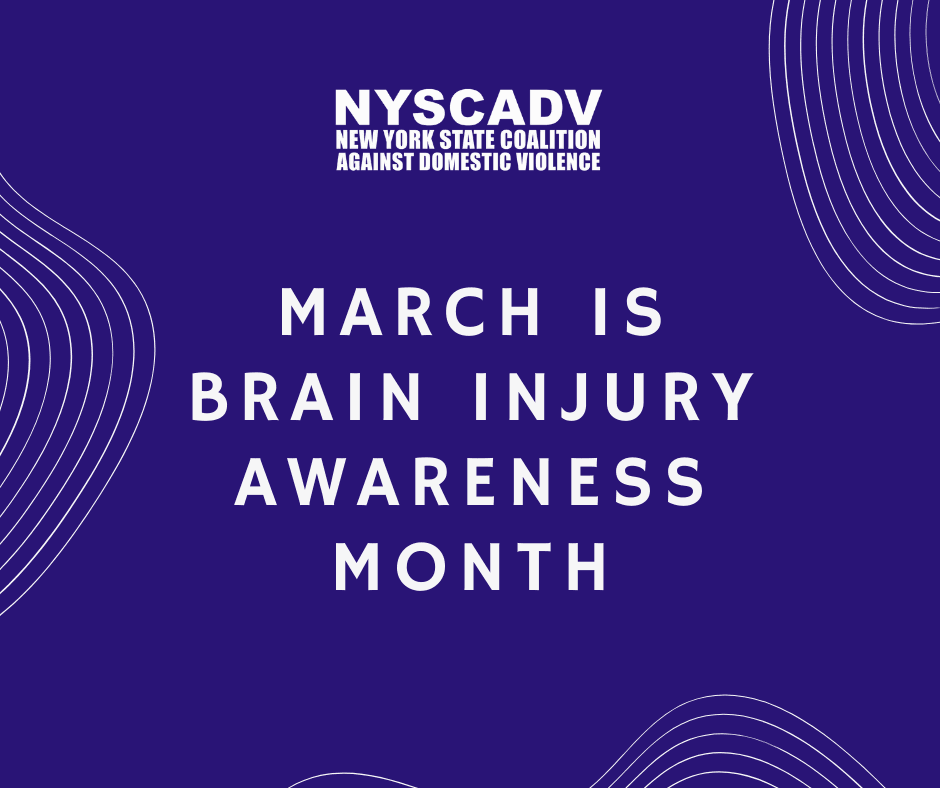
March is National Brain Injury Awareness Month, a time to recognize the millions of lives impacted by stroke and Traumatic Brain Injury (TBI) across the United States. With TBI standing as the second most prevalent injury and disability, it is crucial to understand the causes and consequences that often remain unseen. Among the leading causes—falls and assaults—lies a harrowing reality: the intersection between TBI and domestic violence.
The Unseen Impact of Domestic Violence on Brain Injury
In intimate relationships where trust is shattered and power is misused, the consequences of domestic violence extend far beyond physical harm. Injuries to the face, head, and neck are grim reminders of trauma endured, but the full extent of the damage is often invisible. Contrary to common perception, brain injuries do not always leave visible marks. The hidden nature of TBIs manifests in diverse and debilitating ways, including:
- Chronic headaches
- Memory loss
- Mood swings and emotional dysregulation
- Cognitive impairments
Strangulation: A Silent and Lethal Threat
Strangulation, in particular, emerges as a silent yet potent weapon of control and harm in domestic violence situations. By restricting oxygen flow to the brain, strangulation can cause significant neurological damage—damage that may not become apparent until years later. In fact, research indicates that symptoms of TBI may surface five to ten years post-assault, complicating the path to diagnosis and recovery.
Breaking the Silence: Education and Advocacy
At the New York State Coalition Against Domestic Violence (NYSCADV), we are committed to illuminating the link between domestic violence, strangulation, and brain injuries. Education is our most powerful tool, empowering survivors to recognize the signs and seek the support they deserve. It is equally crucial to raise awareness among advocates, healthcare providers, and the community to identify and respond to TBI effectively.
Building Safe Spaces for Healing and Recovery
Prevention and intervention are pivotal. By fostering safe spaces for healing and dismantling the systems that perpetuate violence, we can support survivors on their journey to recovery. Together, we can cultivate a culture of compassion, understanding, and resilience.
#MoreThanMyBrainInjury: Changing the Narrative
This year's theme for Brain Injury Awareness Month is #MoreThanMyBrainInjury. Many survivors face societal stigma and stereotypes that attempt to define their lives by their injuries. This campaign aims to change the narrative, giving individuals the opportunity to share their stories, reclaim their identities, and inspire others to see them beyond their brain injuries.
Stand with Us this March
As we observe Brain Injury Awareness Month, let us stand united in our commitment to unveil the unseen epidemic of brain injuries within the context of domestic violence. Join us in advocating for education, prevention, and support. Together, we can empower survivors to reclaim their narratives and forge a path toward healing.
Get Involved and Learn More
Share this post to raise awareness about the intersection of TBI and domestic violence.
Engage with the #MoreThanMyBrainInjury campaign to amplify survivor voices.
Learn more about our initiatives at NYSCADV and how you can support survivors on their journey to recovery.
This March, let's break the silence, challenge misconceptions, and stand in solidarity with those affected by TBI and domestic violence. Together, we can make a difference. Click here to access campaign materials.
Resources:
Brain Injury Association of New York State
The Brain Injury Association of New York State (BIANYS) has developed resources for education, rehabilitation, community re-entry, accessibility, and more. Click here to view all available resources from the Brain Injury Association of New York.
BIANYS also operates the Family Helpline, a toll-free information and resource clearinghouse available Monday - Friday, from 8:00 AM to 4:00 PM EDT, with a voicemail system for after-hours messages. Whether you are seeking information on traumatic brain injury, looking for resources on rehabilitation, or just trying to find your way, the Family Helpline is there to help!
BIANYS's knowledgeable staff maintains an extensive directory of services across the State. Call 1-800-444-6443 or send them a message. They have resources for individuals with brain injury, family members, professionals, schools, or other interested parties.
New York State Coalition Against Domestic Violence
NYSCADV, in collaboration with BIANYS, presented a series of regional trainings and webinars on "Domestic Violence & Traumatic Brain Injuries, Understanding the Intersections." This recorded webinar provides advocates with an introduction to tools and strategies to help them navigate the intersections of domestic violence and brain injury with the survivors they work with. Participants are provided with:
- An overview and identification of domestic violence-related brain injury
- Strategies for working with individuals with cognitive deficits
- Community resources for individuals with brain injury
Click here to access the recorded webinar and additional materials.
New York State Department of Health
The New York State Department of Health has resources available, including background information on types of brain injuries, prevention, medical care, statistical information on the incidences of traumatic brain injury in New York State, including by county, and much more.
Domestic Violence-related Brain Injury Resources:
Invisible Injuries: Brain Injuries Caused by Domestic Violence
The Ohio Domestic Violence Network: Center on Partner-Inflicted Brain Injury
For Providers: Understanding Domestic Violence as a Cause of TBI
For Providers: It Is Our Responsibility to Recognize Brain Injuries and Intimate Partner Violence in the Women We Serve


